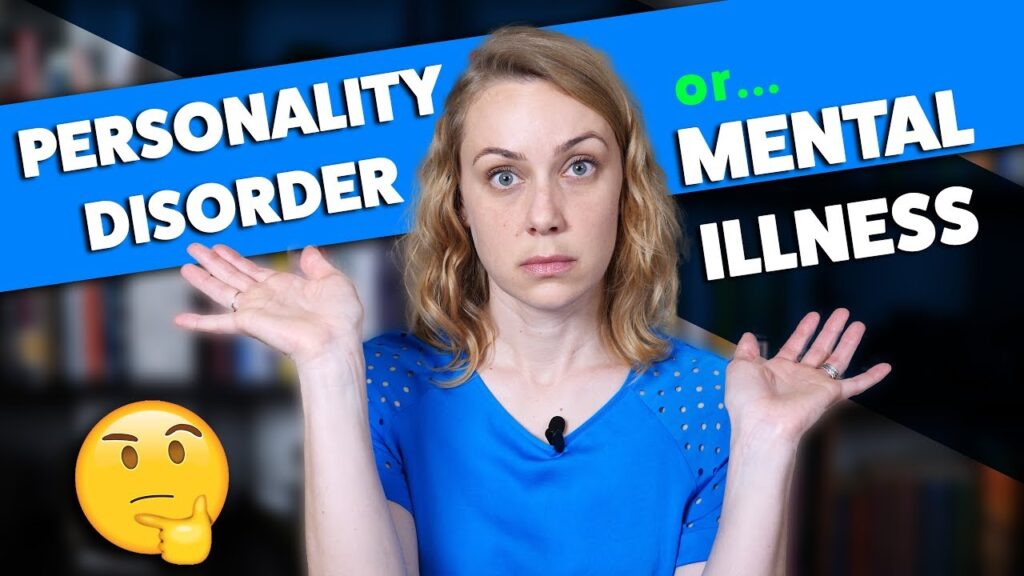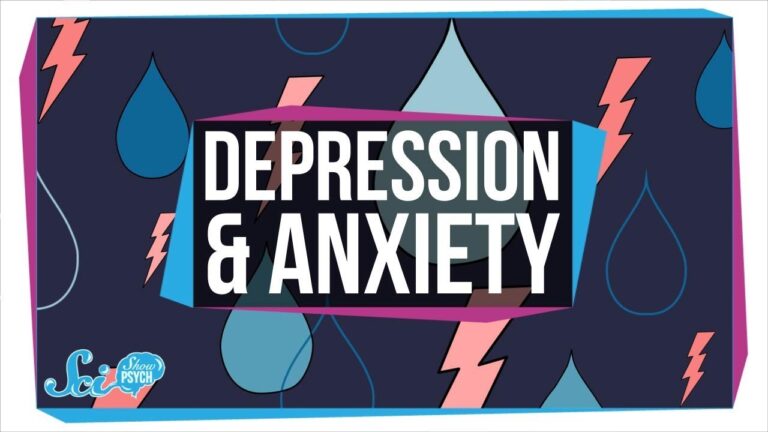The Best Apps and Websites for Mental Illness: How to Access Online Support and Self-care

Understanding Mental Illness: A Comprehensive Guide

Mental illness is a complex and multifaceted topic that affects countless individuals worldwide. Understanding the nuances and challenges associated with mental health is crucial for both those experiencing mental illness and their loved ones. By expanding our knowledge and awareness, we can help eradicate stigma, provide support, and promote understanding.
One of the key aspects of comprehending mental illness is recognizing its prevalence. According to the World Health Organization (WHO), mental disorders affect approximately one in four people at some point in their lives. This staggering statistic highlights the significance of mental health as an essential component of overall well-being. By acknowledging the widespread impact of mental illness, we can foster empathy and create a more inclusive society that prioritizes mental health support.
Online Support: Finding the Right Resources for Mental Health

When it comes to seeking support for mental health, the internet can be a valuable resource. With just a few clicks, you can access a plethora of websites, forums, and online communities dedicated to mental well-being. However, with such a vast array of options available, finding the right resources can be overwhelming. It is important to approach online support with caution and ensure that the information and communities you engage with are reputable and reliable.
One way to ensure the credibility of online resources is to look for websites that are backed by trusted organizations, such as professional associations or mental health institutions. These websites often provide evidence-based information, expert advice, and practical tips for managing various mental health conditions. Additionally, they may offer screening tools, self-help resources, and directories of local mental health services. By relying on these reputable sources, you can be confident that the information you receive is accurate and up-to-date.
Exploring the Benefits of Digital Mental Health Tools

Digital mental health tools have revolutionized the way we access and engage with mental health support. These tools encompass a range of applications and websites that offer a variety of benefits for individuals seeking help and support. One of the key advantages of digital mental health tools is their accessibility. With just a smartphone or a computer and an internet connection, people can access a wealth of resources and support at any time and from anywhere. This is particularly beneficial for individuals who may struggle with physical limitations, lack of transportation, or live in remote areas where mental health services are scarce. The convenience and accessibility of these tools allow individuals to seek support and engage in self-help strategies at their own pace and in a comfortable environment.
In addition to accessibility, digital mental health tools also offer a wide range of resources and interventions that can cater to individuals’ specific needs. Whether someone is looking for information about a particular mental health condition, seeking guidance for managing stress or anxiety, or looking for evidence-based techniques to improve their well-being, they can find a wealth of resources at their fingertips. These tools often provide educational materials, guided self-help programs, interactive activities, and even virtual therapy sessions. By providing a diverse range of options, digital mental health tools empower individuals to take control of their mental well-being and tailor their approach to their unique circumstances and preferences. These tools can be particularly helpful for individuals who may be hesitant to seek face-to-face therapy or prefer a more independent and self-guided approach to their mental health journey.
The Role of Apps and Websites in Promoting Mental Wellness
In today’s digital age, apps and websites have become valuable tools in promoting mental wellness. These platforms offer a wide range of resources and support systems that can help individuals manage their mental health effectively. From mood tracking apps to online therapy platforms, these digital solutions have the potential to revolutionize the way we approach mental well-being.
One of the key advantages of apps and websites is their accessibility. With just a few taps on a smartphone or clicks on a computer, individuals can access a wealth of information, guidance, and support right at their fingertips. This convenience allows people to seek help and connect with others whenever and wherever they may need it. Additionally, many of these apps and websites offer personalized features, such as tailored self-care plans and therapy sessions, which can enhance the effectiveness of mental wellness practices.
Apps and websites play a significant role in promoting mental wellness by providing accessible resources, tools, and support for individuals seeking to enhance their mental health. Here’s a table summarizing the key aspects of their role:
| Aspects of the Role of Apps and Websites in Promoting Mental Wellness | Description | Source of Information |
|---|---|---|
| Education and Information | Apps and websites offer educational content, articles, and resources to increase awareness and understanding of mental health conditions and well-being strategies. | Journal of Medical Internet Research. 2017 Mar;19(3):e85 |
| Self-Help and Guided Interventions | Provide self-help tools and guided interventions for stress reduction, mindfulness, anxiety management, and other mental health concerns. | Journal of Consulting and Clinical Psychology. 2017 Nov;85(11):1033-1041 |
| Mindfulness and Relaxation Techniques | Incorporate features like guided meditation, breathing exercises, and relaxation techniques to promote mindfulness and stress reduction. | Frontiers in Psychology. 2018 Aug;9:1855 |
| Virtual Therapy and Counseling Services | Offer virtual therapy and counseling services, providing accessible and convenient mental health support through online platforms. | World Psychiatry. 2020 Oct;19(3):318-327 |
| Monitoring and Tracking Mental Health | Enable users to monitor and track their mental health, mood changes, and stress levels over time, fostering self-awareness and early intervention. | Journal of Medical Internet Research. 2015 Jan;17(1):e10 |
| Community and Peer Support | Facilitate online communities and peer support networks, connecting individuals with shared experiences to reduce isolation and provide mutual support. | Journal of Medical Internet Research. 2016 Dec;18(12):e321 |
| Therapeutic Gaming and Interactive Content | Introduce therapeutic games and interactive content that promote cognitive stimulation and emotional well-being through engaging and positive experiences. | Frontiers in Psychology. 2016 Oct;7:1604 |
| Crisis Intervention and Helpline Integration | Integrate crisis intervention features and helpline connections, ensuring users have immediate access to professional support during emergencies. | Journal of the American Medical Association. 2015 Aug;314(6):523-534 |
| Personalized Mental Health Plans | Develop personalized mental health plans based on user input and preferences, offering tailored strategies and interventions to address specific needs. | Journal of Technology in Behavioral Science. 2017 Jun;2(2):61-67 |
| Data Security and Privacy Measures | Implement robust data security and privacy measures to protect user information and ensure a safe and confidential space for mental health engagement. | Cyberpsychology, Behavior, and Social Networking. 2019 May;22(5):334-342 |
Finding Reliable Information: Websites for Mental Health Education
When it comes to mental health education, finding reliable information is crucial for individuals seeking accurate and trustworthy resources. Fortunately, there are numerous websites dedicated to providing evidence-based information on mental health topics. These websites are developed and maintained by reputable organizations, mental health experts, and government agencies, ensuring that the information they offer is backed by scientific research and expert knowledge.
One such website is the National Institute of Mental Health (NIMH) (www.nimh.nih.gov), which offers a wealth of information on various mental health conditions and treatment options. NIMH is a leading authority in the field, and their website provides comprehensive information, including symptoms, risk factors, treatment approaches, and research updates. Additionally, NIMH aims to promote awareness and reduce stigma surrounding mental health, making their resources a valuable asset for individuals looking to educate themselves or support loved ones.
Another trusted source is the American Psychiatric Association (APA) (www.psychiatry.org), which represents psychiatrists and advocates for mental health. Their website features educational articles, fact sheets, and resources for different mental health conditions, ensuring individuals have access to credible information. The APA website also provides tools to help individuals locate a psychiatrist in their area, facilitating the search for professional help when needed.
By utilizing these reputable websites, individuals can access accurate and up-to-date information on mental health topics. It is important to remember, however, that while websites can provide valuable insights, professional advice from healthcare providers should always be sought for personalized assessment, diagnosis, and treatment.
Connecting with Others: Online Support Communities and Forums
Online support communities and forums provide a valuable space for individuals to connect, share, and seek support from others who may be facing similar challenges. These virtual communities offer a sense of belonging, understanding, and empathy that can be comforting in times of distress. Moreover, they provide a platform for individuals to express themselves, ask questions, and gain valuable insights from others who have firsthand experience with mental health issues.
Participating in online support communities and forums allows individuals to break the cycles of isolation and stigma often associated with mental health. It provides a safe and non-judgmental space where individuals can discuss their feelings, fears, and struggles openly, without the fear of being misunderstood or judged. By connecting with others who have gone through similar experiences, individuals can gain a sense of validation and realize that they are not alone in their journey towards mental wellness.
In these communities, individuals can find comfort in sharing their stories, gaining support, and receiving helpful advice from others who have faced similar challenges. The power of peer support cannot be underestimated, as it has been shown to significantly improve individuals’ emotional well-being and provide a sense of hope. Engaging with others who have overcome similar struggles can also offer inspiration and motivation for individuals to continue their own healing journey.
Furthermore, online support communities and forums can provide a wealth of information and resources. Members can share articles, research studies, and helpful tips that may aid individuals in managing their mental health more effectively. These platforms also often have professional moderators or mental health experts who can provide guidance and answer questions.
While online support communities and forums can be beneficial, it is important to approach them with caution. It’s essential to verify the credibility and reliability of information shared, as not all sources may be accurate or evidence-based. Additionally, it’s important to engage in these communities mindfully and prioritize self-care. Spending excessive time in these communities may not always be helpful, and it’s crucial to strike a balance between seeking support online and connecting with people in offline, tangible ways.
Now that we have explored the benefits of online support communities and forums, let us delve further into how digital mental health tools, such as apps and websites, can play a significant role in promoting mental wellness and providing additional avenues for support.
Therapy at Your Fingertips: Virtual Counseling and Therapy Apps
Virtual counseling and therapy apps have revolutionized the way people access mental health support. With just a few taps on their smartphones, individuals can now connect with licensed therapists and counselors from the comfort of their own homes. This convenient and accessible form of therapy offers a wide range of benefits for those seeking help.
One of the key advantages of virtual counseling and therapy apps is the removal of geographic barriers. People living in remote areas or those with limited access to transportation can now easily connect with professionals who specialize in their specific needs. This means that individuals no longer have to compromise on the quality of therapy they receive due to their location. Additionally, these apps often offer flexible scheduling options, allowing users to book sessions at a time that suits their busy lives.
Mindfulness and Meditation: Apps for Relaxation and Stress Reduction
Mindfulness and meditation are powerful tools for relaxation and stress reduction. With the modern convenience of smartphones and technology, there are now plenty of apps available to guide you through these practices. These apps provide a convenient way to incorporate mindfulness and meditation into your daily routine, no matter where you are.
The benefits of mindfulness and meditation are well-documented. Research has shown that regular practice can reduce stress levels, improve mental well-being, and enhance overall quality of life. By taking a few moments each day to tune into your breath, thoughts, and sensations, you can cultivate a sense of calm and inner peace.
One popular app is Headspace, which offers guided meditations for beginners and advanced practitioners alike. With its user-friendly interface and variety of meditation programs, Headspace has garnered millions of users worldwide. Another notable app is Calm, which offers a range of guided meditations, sleep stories, and relaxation techniques designed to reduce anxiety and promote relaxation.
Whether you’re a beginner looking to start your mindfulness journey or an experienced practitioner seeking new techniques, these apps can be invaluable resources. By taking advantage of the technology at our fingertips, we can easily incorporate relaxation and stress reduction into our daily lives. So why not give these apps a try and see how they can contribute to your overall well-being?
Tracking Your Mental Health: Apps for Mood and Symptom Management
Mood swings and fluctuations in emotional well-being are common experiences for many individuals, and tracking these changes can provide valuable insights into one’s mental health. Thankfully, there are now a myriad of apps available that can assist in monitoring mood and managing symptoms. These apps offer users the ability to log their emotions, track patterns, and gain a better understanding of their mental state over time.
Not only do these apps allow for the tracking of mood, but they also provide options to record other vital information such as sleep patterns, physical activity, and medication intake. By consolidating this data in one place, users can identify correlations between different aspects of their lives and their mental well-being. For instance, they may notice that poor sleep usually leads to heightened anxiety or that engaging in regular exercise boosts their mood. Armed with this knowledge, individuals can make informed decisions and implement strategies to improve their mental health and overall well-being.
Self-care Made Easy: Apps and Websites for Personal Well-being
Self-care is essential for maintaining our overall well-being, and thanks to the advancements in technology, it has become easier than ever to incorporate self-care practices into our daily lives. With the multitude of apps and websites dedicated to personal well-being, we now have access to a wealth of resources that can help us prioritize our mental and physical health.
One aspect of self-care that many of us struggle with is maintaining a balanced and healthy diet. Thankfully, there are numerous websites available that provide valuable information on healthy eating tips, recipes, and meal planning. These websites offer a variety of resources, from articles on the benefits of nutrient-rich foods to interactive tools that help you create a personalized meal plan based on your dietary needs. By utilizing these websites, you can take control of your nutritional intake and make informed choices that support your overall well-being.
In addition to nutrition, another important aspect of self-care is getting enough sleep. Lack of quality sleep can have a detrimental impact on our mental health, making it crucial to prioritize proper sleep hygiene. There are several apps available that can help you improve your sleep patterns by providing features such as sleep tracking, guided relaxation exercises, and soothing soundscapes. By utilizing these apps, you can better understand your sleep patterns, identify potential areas of improvement, and establish a bedtime routine that promotes deep and restful sleep. Investing in your sleep will not only boost your physical energy but also enhance your mental clarity and emotional well-being.
By incorporating apps and websites into our self-care routines, we can effortlessly prioritize our personal well-being. Whether it’s monitoring our nutrition, improving our sleep patterns, or exploring other areas of self-care, technology has provided us with a wealth of resources that make self-care more accessible and convenient than ever before. So why not take advantage of these incredible tools and take the first step towards a healthier and happier life?
Building Resilience: Tools for Coping and Mental Strength
Resilience is an essential quality that enables individuals to navigate through life’s challenges and bounce back from adversity. Building resilience requires adopting healthy coping mechanisms and developing mental strength. Fortunately, there are various tools and strategies available to help individuals enhance their resilience and navigate difficult situations with strength and positivity.
One powerful tool for building resilience is practicing gratitude. Numerous studies have shown that expressing gratitude has numerous psychological benefits, including increased positive emotions, improved mental health, and a greater sense of well-being. Simply taking a few minutes each day to reflect on the things you are grateful for can make a significant impact on your resilience and overall mental well-being.
Another effective strategy for building resilience is developing a strong support network. Connecting with others who understand and validate your experiences can provide a sense of belonging and support that can help you navigate through challenging times. Whether it’s joining online support communities, participating in group therapy sessions, or simply reaching out to friends and loved ones, having a support network can make a significant difference in how you cope with adversity.
In addition to gratitude and support networks, there are numerous other tools and strategies available for building resilience. These include mindfulness and meditation practices, maintaining a healthy lifestyle with regular exercise and proper nutrition, engaging in self-care activities, and seeking professional help when needed. By incorporating these tools into your daily life, you can strengthen your coping skills, build mental strength, and enhance your overall resilience.
Journaling for Mental Health: Digital Platforms for Expressive Writing
Digital platforms have revolutionized the way we approach journaling for mental health. With the accessibility and convenience they offer, many individuals are turning to these platforms as a means of expressing their thoughts and emotions. Whether it be through mobile apps or online platforms, the digital landscape provides a safe and private space for individuals to engage in expressive writing.
One of the key benefits of digital journaling platforms is the ability to customize and personalize your journaling experience. These platforms often offer a range of features, such as password protection, customizable layouts, and various writing prompts. Whether you prefer a minimalistic interface or a more visually appealing aesthetic, there are options to cater to your individual preferences. Additionally, many platforms allow you to organize your entries into categories or themes, making it easier to track your progress and identify patterns in your emotions and thoughts over time.
Sleep and Mental Health: Apps for Improving Your Sleep Patterns
Sleep plays a crucial role in maintaining good mental health. Adequate and quality sleep is essential for our overall well-being, as it allows our bodies and minds to rest, rejuvenate, and recover from the day’s activities. However, many individuals struggle with sleep-related issues, which can have a detrimental effect on their mental health.
Fortunately, there are a variety of apps available that aim to improve sleep patterns and promote better mental health. These apps offer a range of features and techniques designed to help individuals fall asleep faster, sleep more soundly, and wake up feeling refreshed. From white noise and relaxation melodies to guided meditation and sleep tracking, these apps provide a holistic approach to addressing sleep problems. They also offer insights into sleep patterns, allowing users to identify trends and make necessary adjustments to their routines.
One popular app, for example, utilizes a combination of soothing sounds, guided imagery, and breathing exercises to promote relaxation and reduce anxiety before bedtime. Another app tracks sleep patterns and provides personalized recommendations, such as adjusting bedtime routines or incorporating relaxation techniques. These apps not only address the immediate symptoms of insomnia or sleep disturbances but also encourage long-term habits that promote healthy sleep. By incorporating these apps into their daily routines, individuals can take proactive steps towards improving their sleep patterns and ultimately enhancing their mental well-being.
Nutrition and Mental Wellness: Websites for Healthy Eating Tips
When it comes to mental wellness, many people may overlook the important role that nutrition plays. However, research has shown that what we eat can have a significant impact on our mental health. Fortunately, there are many websites available that provide valuable information and tips on how to maintain a healthy diet for optimal mental well-being.
One such website is “HealthyMinds.org,” which offers a wealth of information on the connection between nutrition and mental wellness. From articles detailing the specific nutrients that support brain health to tasty and nutritious recipes, this site is a valuable resource for anyone looking to improve their mental well-being through their diet.
Another website that focuses on the link between nutrition and mental health is “Mind.org.” This site provides evidence-based information on the impact of diet on mental well-being and offers practical tips on how to make healthy food choices. Additionally, they provide resources for those with specific mental health conditions, such as depression or anxiety, and how nutrition can play a role in managing these conditions.
By exploring these websites and others like them, individuals can gain a better understanding of how nutrition can support their mental wellness. Whether it’s learning about the specific nutrients that benefit brain health or finding healthy and delicious recipes, these resources can empower individuals to make informed choices that promote their overall well-being.
Taking Care of Your Physical Health: Fitness Apps for Mental Well-being.
Fitness apps can be a valuable tool for improving mental well-being. Engaging in regular physical activity has been shown to have numerous benefits for mental health, including reducing symptoms of depression and anxiety, improving cognitive function, and enhancing overall well-being. Fitness apps can provide structure and motivation for incorporating exercise into your daily routine, making it easier to prioritize your physical health and reap the mental health benefits.
These apps offer a variety of features to support mental well-being. Many include customizable workout plans and tracking capabilities, allowing you to set specific goals and monitor your progress over time. Some apps also incorporate mindfulness and meditation exercises, helping you to cultivate a healthier mindset and reduce stress. Additionally, fitness apps often provide opportunities for social connection, whether through virtual challenges or online communities, which can combat feelings of isolation and provide support on your fitness journey. By utilizing these digital tools, you can enhance both your physical and mental well-being in a convenient and accessible way.
Can fitness apps really improve mental well-being?
Yes, fitness apps can have a positive impact on mental well-being. Regular exercise has been shown to reduce symptoms of depression, anxiety, and stress, and fitness apps can provide guidance, motivation, and tracking tools to help individuals incorporate physical activity into their daily routine.
Are there any fitness apps specifically designed for mental health?
While fitness apps are primarily focused on physical health, there are some that also include features to support mental well-being. These apps may offer guided meditations, stress-reduction exercises, mood tracking, or even virtual counseling sessions.
How can fitness apps contribute to overall mental wellness?
Fitness apps can contribute to overall mental wellness by promoting regular physical activity, which has been linked to improved mood, increased self-esteem, better sleep quality, and reduced symptoms of anxiety and depression. Additionally, these apps often provide a sense of accomplishment and motivation, which can positively impact mental well-being.
Can fitness apps help with managing stress?
Yes, fitness apps can help with managing stress. Engaging in physical activity, whether it’s through guided workouts, yoga sessions, or mindful walking, can help reduce stress levels and promote relaxation. Fitness apps can provide a structured approach to managing stress by offering various exercises and techniques to incorporate into one’s routine.
Are there any recommended fitness apps for mental well-being?
There are numerous fitness apps available, and the choice ultimately depends on individual preferences and goals. Some popular fitness apps that have been praised for their mental health benefits include Nike Training Club, Headspace, Calm, Fitbod, and Strava. It’s recommended to explore different apps, read reviews, and try out their features before settling on one that fits your needs.
Are fitness apps suitable for all individuals, regardless of their fitness level?
Fitness apps can be suitable for individuals of all fitness levels. Many apps offer a variety of workout options, from beginner to advanced levels, allowing users to choose activities that align with their current capabilities. It’s important to listen to your body, start at a comfortable intensity, and gradually increase the difficulty as you progress.
Can fitness apps replace professional mental health support?
Fitness apps can be a valuable tool for promoting mental well-being, but they are not a substitute for professional mental health support. If you’re experiencing severe or persistent mental health issues, it’s important to seek help from a qualified healthcare professional who can provide a comprehensive assessment and personalized treatment plan. Fitness apps can complement professional support but should not be relied upon as the sole source of mental health care.
Are fitness apps free to use?
Many fitness apps offer both free and premium versions. The free versions generally provide access to basic features, while premium versions may offer additional content, personalized plans, or ad-free experiences for a subscription fee. However, there are also several completely free fitness apps available that can still be effective in promoting mental well-being.
Can fitness apps be used by individuals with physical disabilities or limitations?
Yes, fitness apps can be used by individuals with physical disabilities or limitations. Many apps offer modified exercises or workouts designed specifically for people with different abilities. It’s important to choose apps that provide inclusive options and consult with healthcare professionals or fitness experts who can provide guidance tailored to individual needs.
How often should I use fitness apps for mental well-being?
The frequency of using fitness apps for mental well-being can vary depending on individual preferences and goals. It’s recommended to incorporate physical activity into your routine consistently, aiming for at least 150 minutes of moderate-intensity exercise per week. However, you can adjust the frequency and duration of app usage based on your schedule, fitness level, and personal preferences.






